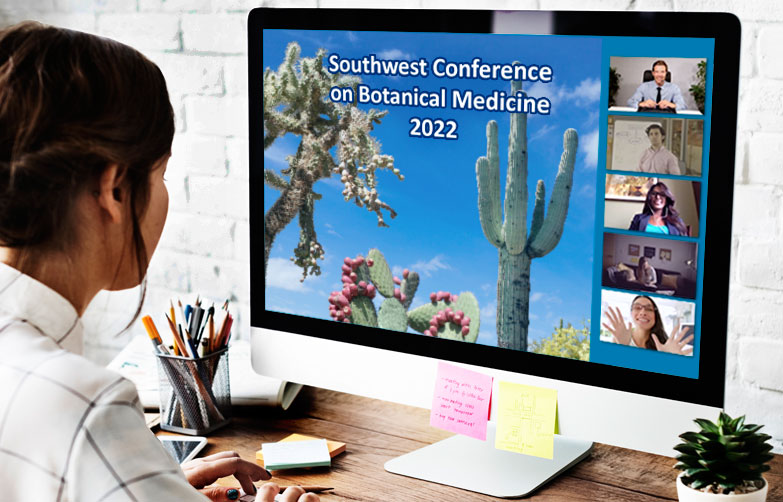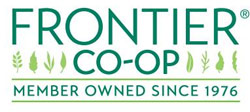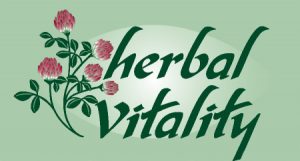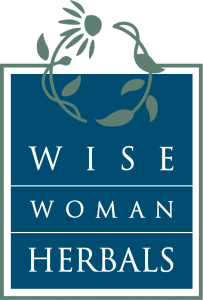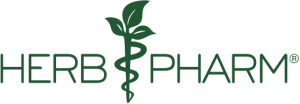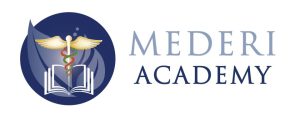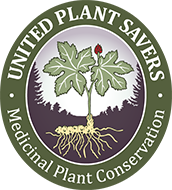Past Conference:
Videos, audio recordings and the digital book from this conference are available for purchase.
Note: Full set of audio and video recordings from this conference provide up to 34.5 hours of CE. Full details here.
If you missed the conference this year, please save the date for next year’s conference: March 24-26, 2023!
Online from Friday, March 25 – Sunday, March 27, 2022
(Extended access to videos after online conference weekend)
Past Conference:
Videos, audio recordings and the digital book from this conference are available for purchase.
Save the Date for next year: March 24-26, 2023
This annual conference will take place online.
Table of Contents
- Live-stream videos March 25 – 27, 2022
- Registration
- Pre-recorded on-demand videos to stream any time
- Continuing Education
- Speakers and Topics
- Sponsors and Online Exhibit Hall
Highlights:
- 23 online lectures: clinical botanical medicine for chronic health conditions via video. See topic list
- Pre-conference Intensive with Erica Zelfand, ND, on the classic psychedelics and their role in mental health. See below for details.
- Two panel discussions on Zoom with audience participation
- Continuing education credits for ND, DO, MD, RN, FNP, LAc and others. Details
- Approved for up to 34 hours of continuing education by the American Academy of Family Physicians (AAFP).
- Approved for up to 38.5 hours of which 13 can be pharmacy, or for Arizona NDs of which 3 can be opioid/addiction + 10 pharmacy (OBNM and SCNM)
- Approved for up to 19 PDA as a live event for acupuncturists (NCCAOM)
- Registration includes:
-
-
- Access to 23 videos for six months
- Digital lecture notes and PowerPoints in PDF format to own
- Full set of audio recordings to own
- Note: Pre-conference intensive video and pdf available for two weeks to intensive attendees. (Will not be sold afterwards). Erica’s materials on psychedelics are available on her website.
- Continuing education ($25 additional fee for CE)
-
Registration: Early bird $325 by March 3; $395 after that date. Includes all video lectures except Friday intensive and CE fee.
Cancellations: By March 10, registration fees will be refunded minus $50 processing per registrant. No refunds can be given after 3/10/22. Refund requests should be emailed to the conference office.
Scholarships: In recognition of the need for diversity in the fields of clinical herbalism and naturopathic medicine, the conference is offering a limited number of full scholarships to persons of color (Black, Indigenous, Hispanic/Latino, and Asian-American) who are not yet practitioners and would like to further their education in the clinical uses of botanical medicine. Details
Other Full and Partial Scholarships are modeled on the work-study program. There are a limited number of scholarships based on financial need, and secondarily on participation in publicity initiatives for the conference. Applications close March 3. Details
Livestream Events held March 25 – 27, 2022
(All live events are recorded for later on-demand viewing for those who can’t attend online at the scheduled time.)

Note: The information provided in this conference is a research resource for health professionals and is not intended to replace diagnosis and treatment by a qualified health care practitioner.
Online Pre-Conference Intensive with Erica Zelfand, ND
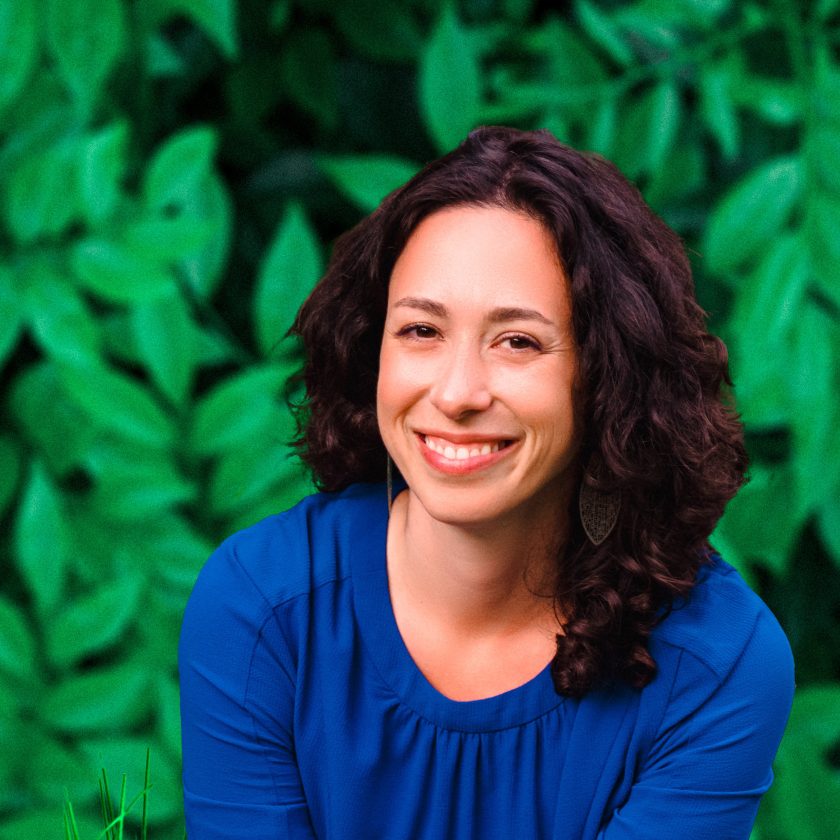
Title: Psychedelics: Therapeutic Uses of Psilocybin and LSD in Mental Health
Date: Friday, 3/25/22
Time: 1:00 – 5:15 PM Arizona and Pacific Time on Zoom (recorded video available for two weeks for viewing only by those signed up to attend.)
Cost: $95
Open only to registered conference participants.
Continuing Education: 4 hours credit
- Approved by the American Academy of Family Physicians (see details below)
- Approved by NCCAOM (4 PDA for acupuncturists)
- Approved by OBNM and SCNM (4 pharmacy credits for NDs)
Description: Part 1: Mechanisms of Action: What we Know about Classic Psychedelics. We examine the pharmacology of the “classic psychedelics: psilocybin and LSD. The effects of these medicines on brain function, chemistry, and neuronal firing will be reviewed, and the concepts of the default mode network (DMN), brain entropy, and child consciousness will be introduced. We will also take a closer look at the role of mystical experiences, and what spirituality has to do with psychological and physiological healing. This will be followed by a brief experiential activity in which elements of a guided session will be experienced first-hand.
Part 2: Microdosing Psychedelics: What We Know and Don’t Know. What happens when we take extremely diluted doses of LSD and/or psilocybin? Everything – or nothing, depending on who you ask. Peppered with real cases of people who have tried microdosing, we will outline the dosage protocols, critique the studies currently available on this new way of taking psychedelics, and summarize their findings. The proposed mechanisms of action of microdosing will be explained, along with safety considerations and drug-drug interactions.
- Erica’s materials on psychedelics are available on her website.
Special presentations for acupuncturists (all are welcome)
8:30 AM – 10:00 AM, Arizona and Pacific Time
Antianxiety Herbs and Mechanisms of Action
Paul Bergner, Medical Herbalist
Gamma-aminobutyric acid (GABA) is an inhibitory neurotransmitter in the central nervous system which is a key target of pharmaceutical drugs in the treatment of anxiety. A review of research shows that a number of herbs traditionally used for anxiety are clinically effective compared to the pharmaceuticals. They have effects on the GABA system but do not present the side effects common to drugs. Herbs we will cover include Piper methysticum (Kava), Valeriana (Valerian), Humulus (Hops), Matricaria (Chamomile), Passiflora (Passion flower) Withania (Ashwagandha), Scutellaria (Scullcap), and Melissa (Lemon Balm).
10:30 AM – 12:00 PM, Arizona and Pacific Time
“Just Another Sleepless Night”; Herbal/Nutritional Protocols for Insomnia and Other Sleep Disorders
David Winston, RH (AHG)
Sleep is one of the foundations of good health. Chronic sleep issues not only make us feel tired, grumpy and irritable, clinical research has clearly shown that poor quality or inadequate amounts of sleep can contribute to hypertension, obesity, diabetes, cancer and heart disease. Many herbs have a long history of being used for insomnia and other sleep disorders, but how do we determine which herbs to use for which sleep disorder and for which person ? In this class we will discuss common sleep problems, the energetic differentiation of insomnia and the most appropriate therapies (herbal/nutritional) to help relieve them based on the specifics of the person and their symptom picture.
9:00 AM – 10:30 AM, Arizona and Pacific Time
Maintaining a Healthy Heart in the Age of COVID
Jillian Stansbury, ND
As we research the ability of COVID to enter cells through ACE receptors and to affect blood cells and clotting functions via these receptors, many researchers posit that both acute and long-term effects of the pandemic virus are due to such vascular mechanisms. Case studies indicate the virus may both harm the heart and vasculature, as well as be worse in those with preexisting metabolic insufficiency or cardio-pulmonary compromise. In light of these findings, supporting a healthy heart is more important than ever. This session will review ACE receptors functions and physiology and offer general and specific herbal options for improving vascular health and perhaps speed recovery for those with vascular sequelae.
11:00 AM – 12:30 PM, Arizona and Pacific Time
Alternatives to Polypharmacy in Conditions of Neurologic Impairment
Kenneth Proefrock, NMD
Those diagnosed with severe neurologic impairment are frequently prescribed multiple medications to manage a variety of interrelated symptoms including pain, uncontrolled muscle tone, seizure, sympathetic storming, dyspnea, gastroesophageal reflux, and constipation. However, limited communication abilities often prevent these patients from reporting their symptoms, and polypharmacy further limits clinical assessment of symptoms and response to therapies. We discuss alternative agents and strategies for the ten most prescribed medications for this population of patients. Although we will focus on the pediatric population, much of this material will be pertinent to all ages. We will also spend some time discussing the special ramifications of neurodegenerative conditions in people as they age, with attention to the often devastating consequences of inappropriate or over-medication, which is a documented major cause of early demise in these patients.
1:30 PM – 3:00 PM, Arizona and Pacific Time
Herbal Medicines and the Gastrointestinal Microbiota: Herbs that Nurture and Herbs that Kill
Jason Hawrelak, ND
Research demonstrating the vital importance of the gastrointestinal tract (GIT) microbiota to human health has been growing exponentially over the past two decades. Investigations have also been finding that an altered GIT ecosystem (i.e., dysbiosis) is involved in the pathogenesis of a number of different disease states – from depression, autism and metabolic syndrome to Alzheimer’s disease, inflammatory bowel disease, and even hypertension. Recent studies have revealed that many herbal medicines have the capacity to alter the composition and functioning of this microbiota. In this presentation, Dr Hawrelak will provide a brief overview of the importance of the GIT microbiota and highlight some of the published research that has assessed the impact of herbal medicines on our GIT microbiome. We will feature botanicals that appear to nurture the microbiota, as well as herbal formulas that can be used to target specific infections or imbalances in the ecosystem. Finally we discuss botanicals whose use may result in unwanted collateral damage to this vital human ecosystem.
3:30 PM – 5:00 PM, Arizona and Pacific Time
Panel Discussion: Botanical and Other Naturopathic Therapies for Managing Multiple Drug Resistant Infections
Speakers: Jason Miller, DACM, LAc, Mary Rondeau, ND, RH (AHG) and Jillian Stansbury, ND
Multiple drug resistance (MDR) had been identified by the CDC as a health emergency that threatens to overwhelm the medical system of the US. These “superbugs” can be very hard to eradicate and can cause serious, life-threatening conditions. Can botanicals and other natural therapies be the answer to antibiotic resistance? We discuss mechanisms of action for resistant bacteria, including efflux pump inhibition and quorum sensing. How can botanicals counteract these cellular effects? Can they be used in combination with other herbs or with antibiotics to increase their effectiveness?
9:00 AM – 10:30 AM, Arizona and Pacific Time
Panel Discussion: Inspiring a Path Toward Wellness for Those in Our Care
Lise Alschuler, ND, Kenneth Proefrock, NMD and Katie Stage, ND, RH (AHG)
How do we offer inspiration and guidance for those who come to us for healing? From the person who is just beginning to explore botanical and natural medicine, to the seasoned patient experiencing motivational challenges, every practitioner has their own approach to inspire patients to make significant changes on the path toward wellness. Three experienced practitioners share their techniques, followed by an open discussion for others to share their ideas.
11:00 AM – 12:30 PM, Arizona and Pacific Time
The Integral Immune System: Harmonizing the Neuroimmune Axis with Botanical Medicine
Jason Miller, DACM, LAc
The intimate relationship between stress and immune system function is often linked to the key role the HPA axis plays in regulating inflammatory signaling networks. Over the past 40 years, the evolution of psychoneuroimmunology has revealed how profoundly the state of one’s mind affects one’s state of health. In patients with even mild depression, T cell responses to certain immune-stimulating molecules (mitogens) were weakened. In cases of both anxiety and depression, the production of white blood cells was reduced and patients exhibited increased susceptibility to infection. Recent research has also revealed that negative emotions can stimulate the production of pro-inflammatory cytokines, pushing the immune system into an excitatory state and exacerbating autoimmune conditions.
The microbiota-gut-brain-axis is an essential component of the neuroimmune network and studies show that what we feel does not originate in the brain, it originates in the gut. Vagal afferent signals account for an estimated 90% of vagal nerve activity, implying that the vast majority of the signals manifesting in the vagal network start in the gut and are sent to the brain. Many botanical formulas can provide immune enhancement by improving function across systems throughout the body, including enhancing digestion, calming the CNS, modulating the stress response, and improving hormone efficiency. These are all examples of therapeutic principles that will improve the health of a patient, and will simultaneously improve immune system function.
1:30 PM – 3:00 PM, Arizona and Pacific Time
A Multidisciplinary Integrated Model for Treating Chronic Pain and Opioid Dependence
David Eisen, LAc, MSW, OMD
W.I.S.H. is an integrated medical and behavioral health program designed to treat chronic pain and opioid dependence effectively and compassionately. The goal of WISH is to increase functionality and quality of life. This program employs a participant centered. trauma-informed approach, The modalities that WISH uses include acupuncture, nutrition, herbal medicine, physical therapy, mentors, movement therapy (yoga/tai chi/qi gong), meditation, and education regarding pain theory. Over the past 6 years WISH has successfully treated over 1,0000 people. Outcomes show significant reductions in pain, increase in ADL’s and better sleep, as well as reduction in hospitalizations.
3:30 PM – 5:00 PM, Arizona and Pacific Time
Finding Balance: Herbs and Treatments to Nurture Yin
Katie Stage, ND, RH (AHG)
There are many ways to understand botanical medicine; one of these is to approach the medicine through an energetic perspective. In Chinese medicine, this balance is described in terms of yin and yang. The importance of finding balance between dark and light, cold and hot, moist and dry, and active and passive is described in a number of traditional medical/ herbal systems. This session will explore herbs that tonify yin, the dark, cool, and moist aspects of health. It will cover conditions including fatigue, peri/menopausal symptoms, gastritis, peptic ulcer disease, GERD, cough, anxiety, depression, support for healthy aging, dementia, and skin health.

Lise Alschuler, ND
Botanicals for Frailty in Elders
Frailty, or a decline in age-specific fitness, affects some elders and is associated with poor quality of life, poorer surgical outcomes, and reduced physical and mental stamina. Frailty exists as the opposite of fitness, thus supporting fitness in elders is of key importance. While nutritional status, physical activity and mental health are key determinants of elder fitness, botanicals offer an important strategy as well. This presentation will focus on several botanicals such as Artemesia spp., Curcuma longa, Astragalus membranaceus, Cordyceps, Crataegus spp, Boswellia serrata and Withania somnifera; each of which can support fitness and reduce specific measures of frailty in elders.
Preserving GI Health During Cancer Care
This presentation will review radiation treatments and chemotherapy agents which can cause mucositis and intestinal toxicities. These pharmaceuticals include alkylating agents, antimetabolites, topoisomerase inhibitors, and microtubule inhibitors. Integrative strategies for managing oral and intestinal toxicities will be reviewed. Nutritional, lifestyle and botanical interventions will be highlighted with a review of the body of evidence and clinical application strategies for each. Examples of therapies to be discussed include glutamine, ginger, honey, olive leaf, topical essential oils, aloe vera, turmeric, green tea, charcoal, and zinc.
Paul Bergner, Medical Herbalist
Antianxiety Herbs and Mechanisms of Action
Gamma-aminobutyric acid (GABA) is an inhibitory neurotransmitter in the central nervous system which is a key target of pharmaceutical drugs in the treatment of anxiety. A review of research shows that a number of herbs traditionally used for anxiety are clinically effective compared to the pharmaceuticals. They have effects on the GABA system but do not present the side effects common to drugs. Herbs we will cover include Piper methysticum (Kava), Valeriana (Valerian), Humulus (Hops), Matricaria (Chamomile), Passiflora (Passion flower) Withania (Ashwagandha), Scutellaria (Scullcap), and Melissa (Lemon Balm).
Herbs for Herpes and Shingles
Oral and genital herpes infections, and shingles outbreaks, are all common conditions in modern practice. The infectious organisms, although not identical, are all in the category of herpesviruses. In-vitro research demonstrates a wide variety of botanical substances can inhibit or kill these viruses, including drug-resistant forms. Such information is relevant to topical applications where the plant material can come into contact with the tissues. In traditional medical herbalism these conditions are treated with a combination of topical and internal applications of herbs, and with dietary manipulation. We will review the science of herbs which suppress these infections and offer practical clinical applications for their treatment.
Isla Burgess, Medical Herbalist
Biophilia: How Participating in the Lives of the Plants that Grow Around You Can Inform your Clinical Practice
“I believe that knowing the plants that grow around you well is a Conservation and Sustainable action. I also believe that knowing a few plants really well is more efficacious clinically than knowing a little about a much larger Materia Medica. When we live among our local plants, watch daily their growth pattern and responses, we know just how much we can gather in the current year. We also know how different seasons affects their nature and over time how they are adapting to change. We can do much to change our prescribing and contribute to reducing the decline of plant species in the wild. We become a ‘Biophiliac’.” — Isla Burgess. Using examples of plants that we all think we know well, this workshop will explore this process.
Deborah Frances, ND
Reclaiming the Sacred in Women’s Health: Herbs as Allies on the Path to Wholeness
Recognizing and honoring the Sacred flowing through the physical bodies of all of us, regardless of age or gender, is an essential part of returning to wholeness and healing our relationships with Mother Earth and all Creation. For women, the inner worlds of spiritual experience have a doorway through the physical realms of our cycles from menarche through menopause and beyond.
In this presentation we examine the spiritual gifts of several herbs combined with specific clinical applications for the treatment of PMS, dysmenorrhea, fibrocystic breasts, bacterial vaginosis, pelvic inflammatory disease, menorrhagia and symptoms associated with menopause. Emphasis is placed on the importance of liver herbs, adaptogens and pelvic decongestants, including Uncaria tomentosa, Nymphaea spp, Hypericum perforatum, Cimicifuga (Actea) racemose, Salvia officinalis, Viburnum opulus and Atropa belladonna.
Strategies for Creating Herbal Formulas
Most plants thrive in community, with roots and branches intertwining and sharing nutrients, shelter and communication. Is it any surprise they work together so well in formulas? There are no hard-and-fast rules for formulating, only tips and guidelines to help us organize our thoughts enough to create a well-balanced formula.
Once a thorough intake has been completed, each case is analyzed to determine which are the primary organs or organ systems to be treated. One or more “lead” herbs are then selected to target those areas. Secondary herb(s) may be chosen to support and enhance or balance actions of the lead herb(s). “Drivers” are herbs that stimulate general circulation (Cayenne, Ginger) or direct the formula to target areas (Pipsissewa or Juniper for the urinary tract).
Sometimes a single herb will do the job and a formula is not needed. Premenstrual breast tenderness, for example, responds well to a simple of Ceanothus spp. This herb provides antioxidant and liver support in addition to its lymphatic actions and has specificity for breast tissue. How many herbs to we want in a formula? Functional heart palpitations are well treated with Leonurus cardiaca, but the addition of Crataegus spp for nourishing support can only enhance the action of the Leonurus.
Finally, we consider whether more than one formula is needed and how our formulas might best be dispensed. Tinctures lend ease in formulating but are not necessarily appropriate for mineral-rich herbs or demulcents. Teas are great for increasing fluid intake. Formulas mixed in powder can be encapsulated or taken with nut butter, applesauce or in liquid. There are as many approaches to creating herbal formulas as there are herbalists formulating. Join us for an adventure in creativity! Presentation will be case-centered.
Jason Hawrelak, ND
Key Points when Prescribing Probiotics in Clinical Practice
Over the last two decades, probiotic research has increased exponentially. This has been mirrored by an explosion of probiotic products in the marketplace. With the sheer choice of probiotic supplements and foods available on the market today, it can be challenging for health professionals to sort through each manufacturers’ claims of superiority. In this presentation, Dr. Hawrelak covers probiotic prescribing fundamentals and details the wide range of mechanisms that explain how these agents can have such myriad health benefits. Benefits include improvement in a wide range of conditions, including systemic conditions like anxiety, type 2 diabetes, and the prevention of respiratory tract infections, as well as gastrointestinal issues such as Helicobacter pylori eradication, irritable bowel syndrome, and celiac disease. The concept of probiotic strain specificity will be examined, and Dr Hawrelak will discuss the shifting paradigm in probiotic prescribing from “re-seeding the gut” to choosing the bacterial strain with the desired action for treating specific conditions. He will conclude by debunking a number of probiotic myths that are widely promoted online.
Kenneth Proefrock, NMD
Botanical and other Protocols for Opiate Use Disorder
The US healthcare system is in the midst of an epidemic of opioid use and misuse, with a record 93,000 deaths in 2020 due to opioid overdoses. Among patients prescribed opioids for chronic pain relief, often for long periods, an estimated 2%-6% will develop some sort of substance use disorder. Three million individuals meet diagnostic criteria for opioid use disorder (OUD). Our clinic has developed a comprehensive naturopathic approach to treating patients with substance abuse issues and withdrawal symptoms over the past 25 years. The foundation of our long-term approach is botanical medicine, counseling, nutritional and lifestyle oriented strategies.
Most pertinent to this talk will be the myriad of ways that natural substances can be used to promote a better calibration of the patient’s response to their self-medication. Specific botanical and nutritional interventions include Mitrogyna (Kratom), Sceletium, Alpinia, Zingiber, Verbena, Urtica, Bergamot…amino acids and their derivatives like Tyrosine. DL Phenylalanine, Phenylbutyrate, inositol, phospholipids, nutraceuticals like Piracetam, Aniracetam and Sulfiram and many more. We will discuss the processes of detoxing/withdrawal, receptor blockade, addressing the underlying causes for substance abuse (physical, psychological, spiritual pain and trauma vs neglect) and the role that transformative, psychedelic experiences can play in the process.
JoAnn Sanchez, MS
Herbs of Joy: A Virtual Guided Plant Show and Preparations Demonstration
Join us for a virtual guided plant show and preparations demonstration (via pre-recorded video) in the SCNM herb garden. Seven botanicals will be highlighted that serve to support us in uplifting our spirits and bringing us joy. Adaptogenic and aromatic compounds, working synergistically in these plants, can be very supportive of our wellbeing and happiness. Join us as we explore a holistic approach to healing our body and mind by partaking in the energetic and physical qualities of these plants and the manifestations of increased joy the “green people” bring us from sunshine.
Jillian Stansbury, ND
Treatment for Acute Panic Disorder
Panic disorder is typically part of a continuum with general anxiety disorder, but the severity and urgency of the symptoms make it imperative for a clinician to offer those suffering some quick relief. This session will explore those herbs that might quickly allay the overwhelming acute symptoms of panic disorder and offer alternatives to pharmaceutical sedatives. We will look at the ‘big guns” such as Rauwolfia and Piscidia and discuss how to use them safely as part of broader protocols that employ adaptogens, nervines, nutrients, sleep support, and self-care. We will explore the mechanisms of action of the leading calmative herbs and demonstrate how to best combine different materia medica options to create herbal formulas to allay both acute symptoms of panic, as well as optimize general nervous system regulation and function.
Andrea Sullivan, ND
The Roots of Naturopathy: Herbal Remedies from African Slaves
For far too long the contributions of African Americans and their ancestors have been ignored or falsified. Contributions to naturopathic medicine are no exceptions. The “secret doctors” on the plantations were never mentioned in my naturopathic education, and yet many of the herbs used on the plantations were studied in class. African slaves were not allowed to read or write, thus much of the learning was by experimentation and word of mouth. There was a knowledge of the medicinal value of plants and similarities in the plants between the Southern States and West Africa. The herbs used by the “secret doctors ” were a welcome alternative, in many instances, to the medicine of the plantation owners. These plants included: Verbascum thapsus, Ocimum spp, Artemisia absinthium, Dioscorea cayenensis subspecies rotundata and Lycopodiella cernua, among others.
“Just Another Sleepless Night”; Herbal/Nutritional Protocols for Insomnia and Other Sleep Disorders
Sleep is one of the foundations of good health. Chronic sleep issues not only make us feel tired, grumpy and irritable, clinical research has clearly shown that poor quality or inadequate amounts of sleep can contribute to hypertension, obesity, diabetes, cancer and heart disease. Many herbs have a long history of being used for insomnia and other sleep disorders, but how do we determine which herbs to use for which sleep disorder and for which person ? In this class we will discuss common sleep problems, the energetic differentiation of insomnia and the most appropriate therapies (herbal/nutritional) to help relieve them based on the specifics of the person and their symptom picture.
Spices for Life
Without spices, our food would be much the poorer in both taste and nutritional value. The world’s great cuisines liberally use garlic, cayenne, ginger, cinnamon, oregano, black pepper, as well as traditional spice blends to dazzle our palates and create symphonies of flavor. Many people are aware that almost all of these aromatic herbs also act as carminatives, helping to improve digestion and relieve GI upset. What is not as well known is that these same herbs offer a plethora of other medicinal effects. Spices are often anti-inflammatory, act as antioxidants, lower blood sugar levels, enhance circulation, improve neurological function, relieve depression, reduce the risk of cancer, diabetes and heart disease, as well as having significant antibacterial and antiviral activity. In this class we will explore the less well known benefits of the herbs found in your spice cabinet, which is a treasure trove of flavor and therapeutic benefits for preventing and treating disease.
Erica Zelfand, ND
Ketamine in Doses Big and Small: Versatility in Treating Depression and Other Mood Disorders
How on earth did ketamine, an anesthesia drug, come to be used for psychiatric purposes? We will review the history of this unique molecule, examine its known mechanisms of action, and explore the theories of how and why it treats depression. After juxtaposing SSRIs with ketamine, we will learn about the several different paradigms for administering the drug, from daily microdoses to large psychedelic “trips” and everything in between. Whether taken as an IV infusion, intramuscular or subcutaneous injection, lozenge, capsule, nasal spray, or rectal suppository, ketamine is the old-but-new drug that may help treat several mood disorders. This lecture will also include some cases from real patients, along with pointers on ketamine safety and suggestions on why the drug may not work as well in some cases.
- Please sign up for CE when you submit your registration form ($25 additional fee for all CE).
- We offer CE, CME, CNE, PDA and CEUs through these approvals
- Credits issued for full or partial attendance
- Totals below include attendance at pre-conference intensive
AMERICAN ACADEMY OF FAMILY PHYSICIANS (AAFP):
Approved for up to 34 hours Prescribed Credit* for DO, MD, RN, FNP, California NDs and others. AAFP Approval details
Approval Statement: The AAFP has reviewed the 2022 Southwest Conference on Botanical Medicine and deemed it acceptable for AAFP credit. Term of approval is from 03/25/2022 to 03/25/2023. Physicians should claim only the credit commensurate with the extent of their participation in the activity.
*AMA/AAFP Equivalency:
AAFP Prescribed Credit is accepted by the American Medical Association as equivalent to AMA PRA Category 1 credit(s)™ toward the AMA Physician’s Recognition Award.
NATUROPATHIC PHYSICIANS:
- Approved for all NDs (including California CNDA) who accept AAFP credits described above
- Approved: Oregon (OBNM): up to 38.5 hours of which 13 can be pharmacy
- Approved: Arizona (SCNM CE Board): 25.5 hours general + 13 hours pharmacy (or 10 pharmacy + 3 hours opioid credits for Arizona NDs)
- ND CE approval details
ACUPUNCTURISTS:
- Approved: NCCAOM: up to 19 PDA (CE hours) for live online event only
- NCCAOM approval details
NURSING:
- Approved by the AAFP (see above) for up to 34 hours CE credit. (AAFP is recognized by the ANCC as a provider of nursing continuing education for RNs, FNPs and other nursing professionals)
A general certificate of attendance is available to any participant who requests it.
Questions about continuing education? Please read our CE FAQ and/or email us. We’re happy to help!
Lise Alschuler, ND
A naturopathic doctor with board certification in naturopathic oncology, Lise Alschuler has been practicing since 1994. She graduated from Brown University with an undergraduate degree in Medical Anthropology and received a doctoral degree in naturopathic medicine from Bastyr University. Dr. Alschuler is past-President of the American Association of Naturopathic Physicians and a founding board member and current President of the Oncology Association of Naturopathic Physicians. She is currently an independent consultant in the area of practitioner and consumer health education. More about Lise Alschuler.
Presentations:
1. Botanicals for Frailty in Elders
2. Preserving GI Health During Cancer Care
3. Sunday Panel: Inspiring a Path Toward Wellness for Those in Our Care
Paul Bergner, Medical Herbalist
The Director of the North American Institute of Medical Herbalism in Portland, Oregon, Paul Bergner offers seminar training in clinical skills, medical herbalism, nutrition, and nature cure. He supervised a teaching clinic in Boulder, Colorado from 1996 until 2012, has edited the Medical Herbalism journal since 1989, and is the author of seven books on herbal medicine. More about Paul Bergner.
Presentations:
1. Antianxiety Herbs and Mechanisms of Action
2. Herbs for Herpes and Shingles
Isla Burgess, Medical Herbalist
A medical herbalist living in New Zealand, Isla Burgess is the director of the International College of Herbal Medicine. She has been an herbal educator and practitioner for over forty years, offering personalized treatment approaches for the restoration of health and prevention of disease. She is the author of “Weeds that Heal: A Working Herbal” and has developed a series of workshops that combine the worlds of current science with that of many indigenous peoples and their relationship with the plants they use as medicine. Lately, Isla’s main focus has been to educate people generally about simple foods and local or easily grown weeds and herbs to improve their health and wellbeing. More about Isla Burgess.
Presentation:
1. Biophilia: How Participating in the Lives of the Plants that Grow Around You Can Inform your Clinical Practice
David Eisen, LAc, MSW, OMD
The executive director of Quest Center for Integrative Health in Portland, Oregon, David Eisen specializes in chronic diseases including HIV/AIDS, cancer, addictions and mental health disorders as well as chronic pain. He serves on the board of directors for the National Acupuncture Detoxification Association, which trains practitioners and advocates for the use of acupuncture for behavioral medical conditions. He is also on the faculty of the Oregon College of Oriental Medicine. He has helped to establish groundbreaking clinical programs integrating acupuncture for addiction and pain in federally qualified health centers and most recently co-authored policies and guidelines for the treatment of chronic pain in homeless adults. He has also served as a reviewer for the National Institutes for Health on alternative therapies. More about David Eisen
Presentation:
1. A Multidisciplinary Integrated Model for Treating Chronic Pain and Opioid Dependence
Deborah Frances, ND
Deborah Frances began her career in health care as a registered nurse, where she gathered extensive experience in a wide range of fields, including psychiatry, women’s health, family practice and intensive and coronary care. In 1993 she graduated from the National University of Natural Medicine in Portland, Oregon. In her healing she utilizes natural therapies such as homeopathy, herbal medicine, hydrotherapy, physical medicine, nutrition and hands on energy therapies to help resolve blocked mental, emotional or spiritual patterns. More about Deborah Frances
Presentation:
1. Reclaiming the Sacred in Women’s Health: Herbs as Allies in the Path to Wholeness
2. Strategies for Creating Herbal Formulas
Jason Hawrelak, ND
Dr. Jason Hawrelak is a researcher, educator, Western herbalist, and naturopathic physician with over 20 years’ clinical experience. His PhD thesis examined the capacity of probiotics, prebiotics and herbal medicines to modify the gastrointestinal tract microbiota. He teaches worldwide on the topics of microbiota modification and gastrointestinal health. He has published extensively in these areas, including 20 textbook chapters. Dr Hawrelak is on the Medical Nutrition Council of the American Society for Nutrition and is a Fellow of both the American College of Nutrition and the Naturopaths and Herbalists Association of Australia. He maintains a busy clinical practice in Hobart, Tasmania, Australia where he consults with patients from all over the world. More about Jason Hawrelak.
Presentations:
1. Key Points when Prescribing Probiotics in Clinical Practice
2. Herbal Medicines and the Gastrointestinal Microbiota: Herbs that Nurture and Herbs that Kill
Jason Miller, DACM, LAc
Jason Miller, DACM, LAc, practices botanical and nutritional medicine, acupuncture, and Asian bodywork at his clinic, Jade Mountain Medicine, in Ashland, Oregon. He received his master’s degree in Acupuncture and Oriental Medicine from the Oregon College of Oriental Medicine in 2005 and completed a postgraduate internship at the “House of Celebrity Doctors” in Nanjing, China. He earned his Doctorate of Acupuncture and Chinese Medicine from the Pacific College of Oriental Medicine in 2018. His approach bridges the frameworks of traditional and modern medicine in the management of chronic disease. At Jade Mountain, he specializes in the management of cancer, diabetes and neuromuscular disorders. More about Jason Miller.
Presentation:
1. The Integral Immune System: Harmonizing the Neuroimmune Axis with Botanical Medicine
2. Saturday Panel: Botanical and Other Naturopathic Therapies for Multiple Drug Resistant Infections
Kenneth Proefrock, NMD
A naturopathic physician practicing in Sun City, Arizona, Kenneth Proefrock specializes in difficult-to-treat conditions in his clinic, Total Wellness. He is the vice-president of the North American Board of Naturopathic Examiners and chair of the biochemistry portion of the naturopathic physician’s licensing exam. His lectures combine a detailed understanding of biochemistry and physiology with a passion for plant medicine. More about Kenneth Proefrock.
Presentations:
1. Botanical and other Protocols for Opiate Use Disorder
2. Alternatives to Polypharmacy in Conditions of Neurologic Impairment
3. Sunday Panel: Inspiring a Path Toward Wellness for Those in Our Care
Mary Rondeau, ND, RH(AHG)
Mary Rondeau ND, RH(AHG) is a registered naturopathic doctor, functional medicine specialist and registered herbalist. Her interest in plants and natural healing stemmed from her upbringing in the Rocky Mountains learning about folk remedies with her mother as a child. More about Mary Rondeau.
Presentation:
1. Saturday Panel: Botanical and Other Naturopathic Therapies for Multiple Drug Resistant Infections
JoAnn Sanchez, RH (AHG)
JoAnn Sanchez is the director of the herbalist training program at Southwest Institute of Healing Arts in
Scottsdale (a 700-hour diploma program), for which she has recently published five textbook manuals. She teaches at the Southwest College of Naturopathic Medicine, where she also tends the medicine garden. More about JoAnn Sanchez.
Presentation:
1. Herbs of Joy: A Virtual Guided Plant Show and Preparations Demonstration
Katie Stage, ND, RH (AHG)
Katie Stage is a naturopathic physician practicing at the SCNM clinic in Tempe. She is a full-time faculty member at SCNM, teaching botanical medicine, hydrotherapy, GYN lab, and clinical skills. More about Katie Stage.
Presentation:
1. Finding Balance: Herbs and Treatments to Nurture Yin
2. Sunday Panel: Inspiring a Path Towards Wellness for Those in Our Care
Jillian Stansbury, ND
Jillian Stansbury is a naturopathic physician who has been practicing in SW Washington State for over 30 years, specializing in women’s health, mental health, and chronic disease. She holds undergraduate degrees in Medical Illustration and Medical Assisting and graduated with honors in both programs. She was the chair of the botanical medicine department at the National University of Natural Medicine for over 20 years. Jill has recently published five herbal formularies for health professionals, comprehensive, practical reference manuals for herbalists, physicians, nurses, and allied health professionals More about Jillian Stansbury.
Presentations:
1. Maintaining a Healthy Heart in the Age of COVID
2. Treatment for Acute Panic Disorder
3. Saturday Panel: Botanical and Other Naturopathic Therapies for Multiple Drug Resistant Infections
Andrea Sullivan, ND
In 1976 Andrea Sullivan was the first African American to receive a PhD from the University of Pennsylvania in Sociology/Criminology. She taught at Howard University and other locations and worked as a special assistant for urban policy to the Secretary of Housing and Urban Development (HUD) during the Carter administration. She went on to earn her ND degree from Bastyr University in 1986 and continues to take advanced courses in homeopathic medicine in the US, India, and Europe. She is a diplomate with the Homeopathic Academy of Naturopathic Physicians and has a private practice in Washington, DC. She is a founding member of the American Association of Naturopathic Physicians and has served locally as president of the DC Association of Naturopathic Physicians. Dr. Sullivan is the author of two books, A Path to Healing: A Guide to Wellness for Body, Mind and Soul and Enough: When Sacrifice has Gone Too Far. More about Andrea Sullivan.
Presentation:
1. The Roots of Naturopathy: Herbal Remedies from African Slaves
David Winston, RH (AHG)
David Winston is an herbalist and ethnobotanist with over 40 years of training and clinical experience in Cherokee, Chinese and Western/Eclectic herbal traditions. He has had a clinical practice for over 30 years and is an herbal consultant to physicians throughout the USA and Canada. President of Herbalist & Alchemist, Inc. an herbal manufacturing company, he is also founder/director of David Winston’s Center for Herbal Studies, which features his highly respected two-year Clinical Herbalist Training Program. More about David Winston can be located at Herbal Studies.
Presentations:
1. “Just Another Sleepless Night”; Herbal/Nutritional Protocols for Insomnia and Other Sleep Disorders
2. Spices For Life
Erica Zelfand, ND
Dr. Erica Zelfand is a naturopathic physician, medical writer/editor, teacher, and public speaker. Dr. Zelfand’s training and skill set span the spectrum of both conventional and natural approaches. She treats people of all ages and stages of life, from newborns to those approaching the end of life. Areas of focus within her family practice include: preventive medicine, chronic illness care, endocrinology, and integrative mental health. She is deeply committed to patient-centered, root-cause-oriented, nature-honoring approaches to healing. Dr. Zelfand is also a facilitator of therapeutic psycho-spiritual experiences and regularly lectures on psychedelic science at medical institutions worldwide. She also trains practitioners through https://ScienceofPsychedelics.com More about Erica Zelfand.
Presentations:
1. Pre-conference Intensive: Psychedelics: Therapeutic Uses of Psilocybin and LSD in Mental Health
2. Ketamine in Doses Big and Small: Versatility in Treating Depression and Other Mood Disorders
Panel Discussions (live with audience participation)
Saturday, March 26, 3:30 – 5:00 PM Arizona Time:
Botanical and other Naturopathic Therapies for Managing Multiple Drug Resistant Infections
Panelists: Jason Miller, DACM, Mary Rondeau, ND, RH (AHG) and Jillian Stansbury, ND
Sunday, March 27, 9:00 – 10:30 AM Arizona Time
Inspiring a Path Toward Wellness for those in our Care
Panelists: Lise Alschuler, ND, Kenneth Proefrock, NMD and Katie Stage, ND
Sponsors and Exhibitors
If you’re interested in sponsorship or exhibiting, please contact us.
We are so thankful for our 2022 sponsors and exhibitors. These remarkable herbal organizations are deeply committed to supporting the wellness and education of herbal enthusiasts.



